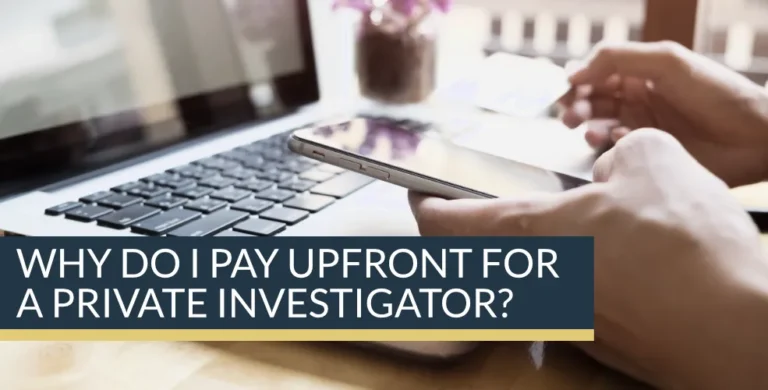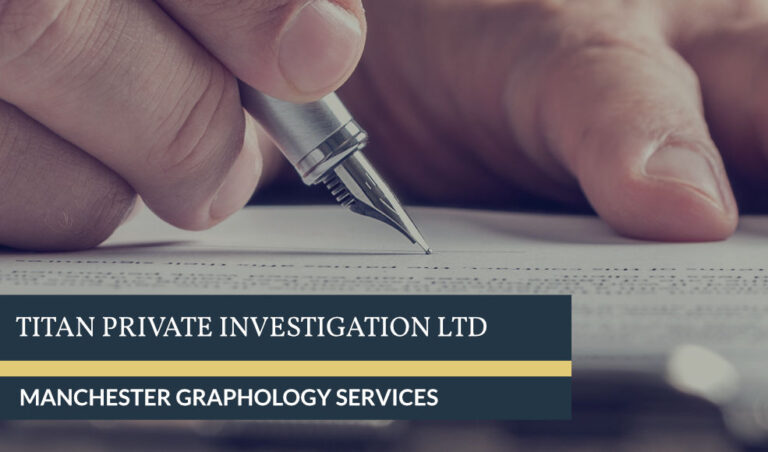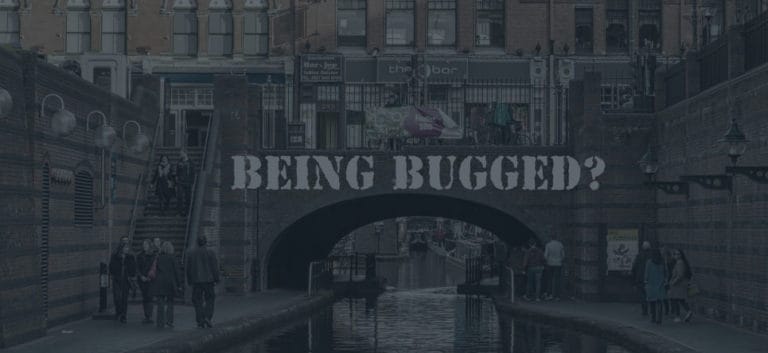Does the Private Investigation Industry Require a Regulatory Body?
The Managing Director of Titan Private Investigation Ltd is well versed and highly experienced as an investigator. He has 17 years within a government role managing national surveillance and investigation operations tackling serious and organised crime and latterly Counter Terrorism.
Now experiencing his second year within the private sector at the helm of a successful national investigation company he looks at the differences between the training, capabilities and authorisation required within the public and private sectors.
So firstly, it’s pertinent to highlight the differences between the 2 sectors when deploying a team with mobile/rural surveillance and tracker deployment capability.
1. TRAINING
Public Authority
- Must have successfully completed;
- A national surveillance course (6 weeks)
- An advanced driving course (4 weeks)
- Advanced motorcycle course (4 weeks)
- Covert Rural Observation Post – CROP (4 weeks)
- Motorcycle surveillance course (2 weeks)
- A camera competency course (5 days)
- A log keeper course (1 day)
- Regular training
Private Sector
- No official training required.
2. CAPABILITIES
Public Authority
- Surveillance (foot/mobile)
- Financial Investigation (banking and account information)
- Phone tracing/subscriber checks/billing information/call data
- Remote rural observations
- Intrusive eavesdrop and imagery
- Vehicle tracking
- Person tracing
Private Sector
- Surveillance (foot/mobile)
- Financial Investigation (banking and account information)
- Phone tracing/subscriber checks/billing information/call data
- Remote rural observations
- Intrusive eavesdrop and imagery
- Vehicle tracking
- Person tracing
The capabilities are identical and much more widely and freely available within the private sector, however the public authority have additional access to databases such as;
- Automatic Number Plate Recognition – ANPR
- Police National Computer – PNC
- Intelligence systems
3. LEGISLATION
Public Authority
- Regulation of Investigatory Powers Act 2000 (RIPA)
| Type of Surveillance | Interception of Communications | Intrusive Surveillance | Directed Surveillance | Covert Human Intelligence Source | Communications Data |
|---|---|---|---|---|---|
| Examples | 1 Phone tap. 2 Removal of mail from a post-box. 3 Monitoring emails. |
1Deployment of a tracker. 2 Eavesdrop or imagery within a private property. |
1 Following a subject in public. 2 Taking imagery of a subject. |
1 Informant. 2Undercover operation. 3 Honey trap. |
1 Locating a mobile phone. 2 Owner details. 3 Info regarding type of communication, when sent and duration. |
| Authority Level required | Home Secretary or Secretary of Justice | Chief Constable | Superintendent | Superintendent | Superintendent |
- European Convention of Human Rights
| Article 1 | Obligation to respect Human Rights |
|---|---|
| Article 2 | Right to life |
| Article 3 | Anti-torture and inhumane treatment |
| Article 4 | Anti-slavery |
| Article 5 | Right to liberty and security of the person |
| Article 6 | Right to a fair trial |
| Article 7 | Anti-retrospective conviction |
| Article 8 | Right to private and family life |
| Article 9 | Right to freedom of thought, conscience and religion |
| Article 10 | Right to freedom of expression |
| Article 11 | Right to freedom of assembly and association |
| Article 12 | Right to marriage |
| Article 13 | Right to an effective remedy |
| Article 14 | Anti-discrimination |
| Protocol 1 Article 1 | Right to peaceful enjoyment of property |
| Protocol 1 Article 3 | Duty to provide fair and free elections |
| Protocol 2 Article 1 | Right to education |
- Data Protection Act 1998
- Criminal Procedure and Investigations Act 1996
- This sets out the manner in which the authorities are to record, gather, retain and disclose material obtained in an investigation.
Police & Criminal Evidence Act 1984 – PACE
- This is a legislative framework for the powers of police officers in England and Wales to combat crime, as well as providing codes of practice for the exercise of those powers.
- Serious Organised Crime & Police Act 2005
Private Sector
- None are mandatory.
What do I think Private Investigators should have knowledge of and act in the spirit of?
- Regulation of Investigatory Powers Act 2000 (RIPA)
- Continually reassessing the necessity and proportionality of the objectives and tactics employed. Reviewing the degree of collateral intrusion and private information gained.
- Police & Criminal Evidence Act 1984 – PACE
- Particularly when statement taking and conducting interviews.
- European Convention of Human Rights
- In particularly Articles 2, 3, 6 & 8.
- Criminal Procedure and Investigations Act 1996
- In relation to lawful gathering of evidence, its retention and disclosure.
- Serious Organised Crime & Police Act 2005
What do I think Private Investigators should adhere to?
- Data Protection Act 1998
- Registering with the Information Commissioner’s Office, being aware of the Surveillance Camera Code of Practice and knowing the 8 principles of the act.
- Private Security Industry Act 2001
- This act enabled the Security Industry Authority (SIA) to license various occupational groups in the private security sector, such as: Door Supervisors, CCTV operators and professional private investigators.
- Bribery Act 2010
-
- It places an onus on businesses and individuals to prevent bribery. The Act makes it an offence to, “Fail to prevent bribery”.
- Health and Safety Acts and Regulations, including the Health and Safety at Work Act 1974
-
- Safe and healthy working conditions is a paramount concern to you as an employer, an employee, agent or even a sole trader.
- Civil Procedure Rules
- In relation to witness statements.
- The Protection from Harassment Act 1997
- The legislation was always intended to tackle stalking, but the offences were drafted to tackle any form of persistent conduct which causes another person alarm or distress.
- Sexual Offences Act 2003
- Sections 67 and 68 with regard to voyeurism and the penalties for using surveillance equipment on the instruction of your client dependant on their and or the investigator’s intent.
- The Computer Misuse Act 1990
- Legislation criminalising the unauthorised access to a computer.
- Security Industry Authority (SIA) Standards of Behaviour
So, Does the Private Investigation Industry Require a Regulatory Body?
My professional opinion is YES, the private sector is in need of a regulatory body, the industry requires licensing. This industry is flooded with surveillance operatives/investigators, some of which are unscrupulous individuals, some have no formal training, aren’t registered with ICO, aren’t tax registered, not insured, I could go on and they are the very reason licensing is required. It would minimise the amount of individuals who borrow a camera, have no additional equipment other than a vehicle and state that they are surveillance operatives. Having said that there are many professionals within the industry who are trusted and who provide a top class service. The introduction of a regulatory body would enable the ability to monitor the industry and those who operate within it, create a minimum standard of entry, offer continuing professional development and as an employer only licensed personnel would be employed.
There are many lessons to be learnt from the security industry and the introduction of the SIA as a regulatory body, however overall it’s been advantageous and appears to be a positive step.
Titan Private Investigation Ltd embraces key parts of RIPA, constantly assessing the necessity, proportionality and whether it’s reasonable. We continually monitor the collateral intrusion of our operations and the level of private information gained, store it in accordance with the Data Protection Act 1998 and strive to uphold the utmost integrity. We consider the ECHR, in particular;
- Article 2 – Right to Life
- Article 3 – Anti-Torture and Inhumane Treatment
- Article 6 – Right to a fair trial
- Article 8 – Right to private and family life
- Article 14 – Anti-discrimination
Titan is ISO9001 Quality Management certified and all employees have undergone training, insured, ICO registered, criminal record checked and controlled by our strict non-disclosure agreement and contract.















